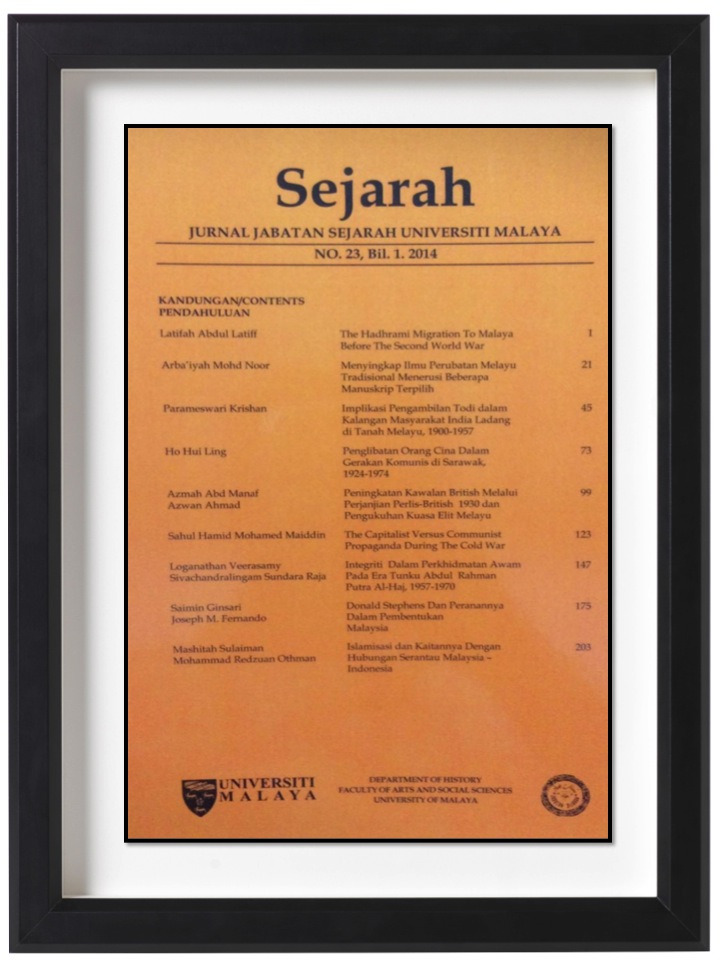IMPLIKASI PENGAMBILAN TODI DALAM KALANGAN MASYARAKAT INDIA LADANG DI TANAH MELAYU, 1900-1957
DOI:
https://doi.org/10.22452/sejarah.vol23no1.3Abstract
At present, studies on the history of Indians in colonial Malaya are described as onedimensional, with the discussion mainly focusing on their arrival as immigrant groups and their involvement in the estate sector. Other aspects of Indian history in colonial Malaya have not been given proper emphasis especially on matters considered taboo, such as those arising from toddy consumption. Toddy drink was newly acquired habit to many of the Indian labourers in Malaya. This needless temptation provided in estates at their very doors was the real reason for this. Many estates had many toddy shops and there were divisions on them. Toddy became a daily routine among the Indian labourers in spite of the fact that it was considered luxury and and excluded from their monthly budget. The introduction and supply of toddy in almost all estates led to consequences that affected the quality of life of the estate labour community. The effect went beyond the toddy drinkers themselves and included their families, the social system, and life in the estate overall. Realising this problem, this study focuses on the consumption of toddy and its effects on the Indian labour class in Malaya, 1900-1957. In the meantime, the three biggest implications focused in this paper are health, problems, poverty, and crime.


